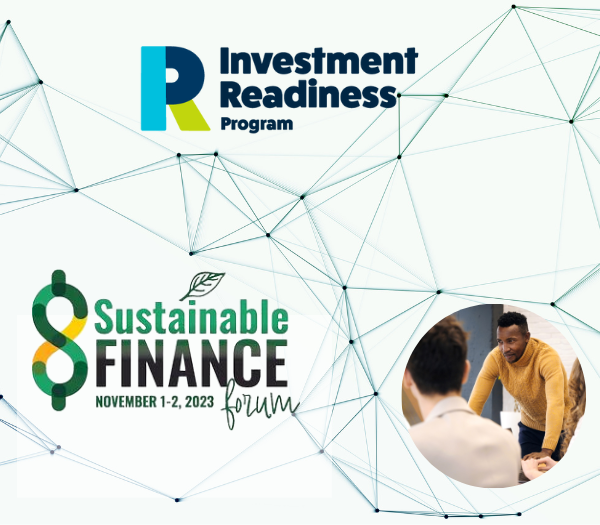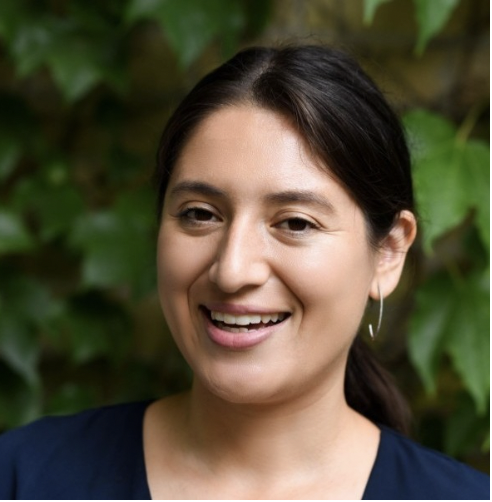A new co-operative federation called the Banker Ladies council is based within a Black feminist cultural tradition called a Rotating Savings and Credit Association (ROSCA). This groundbreaking group of Black women are redefining what it means to establish their own economic systems rooted in the systems of trust, reciprocity and cooperativism their ancestors have used for generations.
In New Minas, Nova Scotia, a social enterprise called The Flower Cart Group has been serving persons with disabilities and complex barriers to employment for 53 years. This year they’re realizing their dream of building a new facility to meet the increased demand for their services and expanding their capacity.
In the face of the affordable housing crisis, New Market Funds and New Commons Development’s Small Communities Initiative works with small, rural BC communities to create and preserve affordable housing for vulnerable populations, retrofitting and constructing new builds that are in line with community needs while prioritizing environmental sustainability.
What do these three stories have in common?
They’re all using forms of social finance, a term that encompasses a wide range of organizations, businesses and services that also serve a breadth of community needs and are redefining economic power within a community-based context. If your business, co-op or social enterprise has a mission to improve the social, cultural and/or environmental sustainability within your community, your region, or the sector you’re in and you’re interested in exploring finance options that include the social impact you’re creating – you’re likely considered to be a Social Purpose Organization, and also you’re part of the social finance ecosystem whether you know it or not.
The Investment Readiness Program and what comes next
The Investment Readiness Program (IRP) was designed to be a funding program to directly provide Social Purpose Organizations with non-repayable capital to get them business development support, and was based on recommendations in Inclusive Innovation, the report guiding the federal government’s initiatives to strengthen social innovation and social finance in Canada. Here at CCEDNet, our IRP team have been leaders in the social finance ecosystem, supporting the creation of collaborative processes thanks to the federal Department Employment and Social Development Canada (ESDC).
As the IRP Partnership Convener, we bring the program partners, including ESDC, together to share learning, insight, and action as we work to support Social Purpose Organizations and the broad social finance ecosystem to enable more social finance across the country. However, now that this second round of funding has ended and we have no confirmation of a future round of IRP funding, we are working together to figure out how best to continue the momentum we have built.
Social finance is one of those concepts that folks seem to generally agree upon as a good thing but it’s perhaps still a bit mysterious, difficult to define and can be confusing because it’s all around us yet it’s hard to put your finger on. Part of the issue is that it’s hard to find a succinct go-to resource for understanding social finance in Canada, and another part of the issue is that the language that’s been developed for this sector has been developed by government and funders on the “supply side” of providing capital, instead of those on the “demand side” who need and are applying for this funding, such as Social Purpose Organizations and those that serve them. Often this kind of work is known by different names and labels from within grassroots organizations and communities doing it themselves.
CCEDNet is leading a project to do just this – to bring folks together from various sectors, regions and communities to define what social finance means on their own terms. This Demand-Side Social Finance Info Hub will be a place to find easily downloadable, shareable content explaining what social finance is and what the impact in Canadian communities has been. It will also be a place to figure out where any given organization fits within the social finance ecosystem, whether social finance is for them. Finally, it will display data from this ecosystem and provide pathways to connect with Social Finance Fund intermediaries when this information becomes available and Social Purpose Organizations can access repayable capital through these intermediaries for the Social Finance Fund. Social finance has been in the spotlight lately, particularly with the federal announcement of the $755 million Social Finance Fund earlier this year in May and we are pleased to be working towards a community-based pathway for access to this capital when it becomes publicly available.
The Sustainable Finance Forum
On November 1-2, 2023, over 600 social finance practitioners, community leaders, elected officials and policy makers came together for the second Sustainable Finance Forum.
Based on the success of the previous Sustainable Finance Forum in 2022, CCEDNet volunteered to support the coordination of the event. MP Ryan Turnbull, a long-time CCEDNet member prior to being elected to represent the riding of Whitby in the House of Commons of Canada, spearheaded this initiative to engage policy makers and create cross-party support for social and sustainable finance. CCEDNet saw this as an opportunity to raise awareness around social finance to policy makers and elected officials, and to connect them with community-led social finance models and leaders across Canada. Last year’s inaugural Sustainable Finance Forum was a closed, invite-only event on Parliament Hill, and CCEDNet’s Executive Director, Mike Toye, advocated that this year’s Forum take place “off the Hill” so that non-government actors including community leaders and Social Purpose Organizations could access the event and take part in these important conversations. Part of CCEDNet’s organizational goals are to advance policy change, and this opportunity is an example of connecting communities and engaging directly with policy makers.
CCEDNet helped convene more than 40 industry leaders as part of the advisory committee for the Sustainable Finance Forum, who informed the program and helped frame the conversations. We are incredibly grateful to Advisory Committee members who supported the planning of the Forum and for the sponsorship of values-aligned credit unions, co-operatives and impact investors such as Desjardins, Vancity, Co-operators, and Addenda Capital who made the event possible.
The 2 days of the Forum were full of rich discussions that included conversations on social finance from different perspectives and across industries, including Sustainable Food Systems, Greening Finance, Indigenous Social Economy and Reconciliation and Affordable Housing. Including both the Prime Minister and Deputy Prime Minister & Minister of Finance, the Forum mobilized an unprecedented lineup of speakers and spoke to a wide range of stakeholders who don’t often get the chance to connect to each other – from Members of Parliament to grassroots organizers and community leaders. Bringing together such a diverse variety of speakers and stakeholders also meant that these conversations were coming from many different points of view and lived experiences, and we heard some painful anecdotes, inspirational stories, as well as pledges that are full of hope and promise.
It is a unique position CCEDNet is in as an intermediary, working with government and working with communities on the ground, that led us to organizing such an event. It is equally a privilege and responsibility to the communities we serve for us to push these conversations forward into action, and to continue to hold ourselves and each other accountable to promises made in creating and maintaining an economy that reflects truly sustainable and inclusive development. We heard multi-party commitments to creating sustainable, climate friendly finance solutions, as well as pledges of making social finance a more central part of our economy. After such an event, we all know that the real work is yet to come in figuring out how to build and strengthen relationships that sustain these actions and propel us forward into new territory towards a more sustainable, socially conscious economic system.







